Guest blogger Kara Ayers is the Advocacy and Dissemination Coordinator for The University of Cincinnati University Center for Excellence in Developmental Disabilities (UC UCEDD) and has been featured on Disability Blog the official blog for Disability.gov.
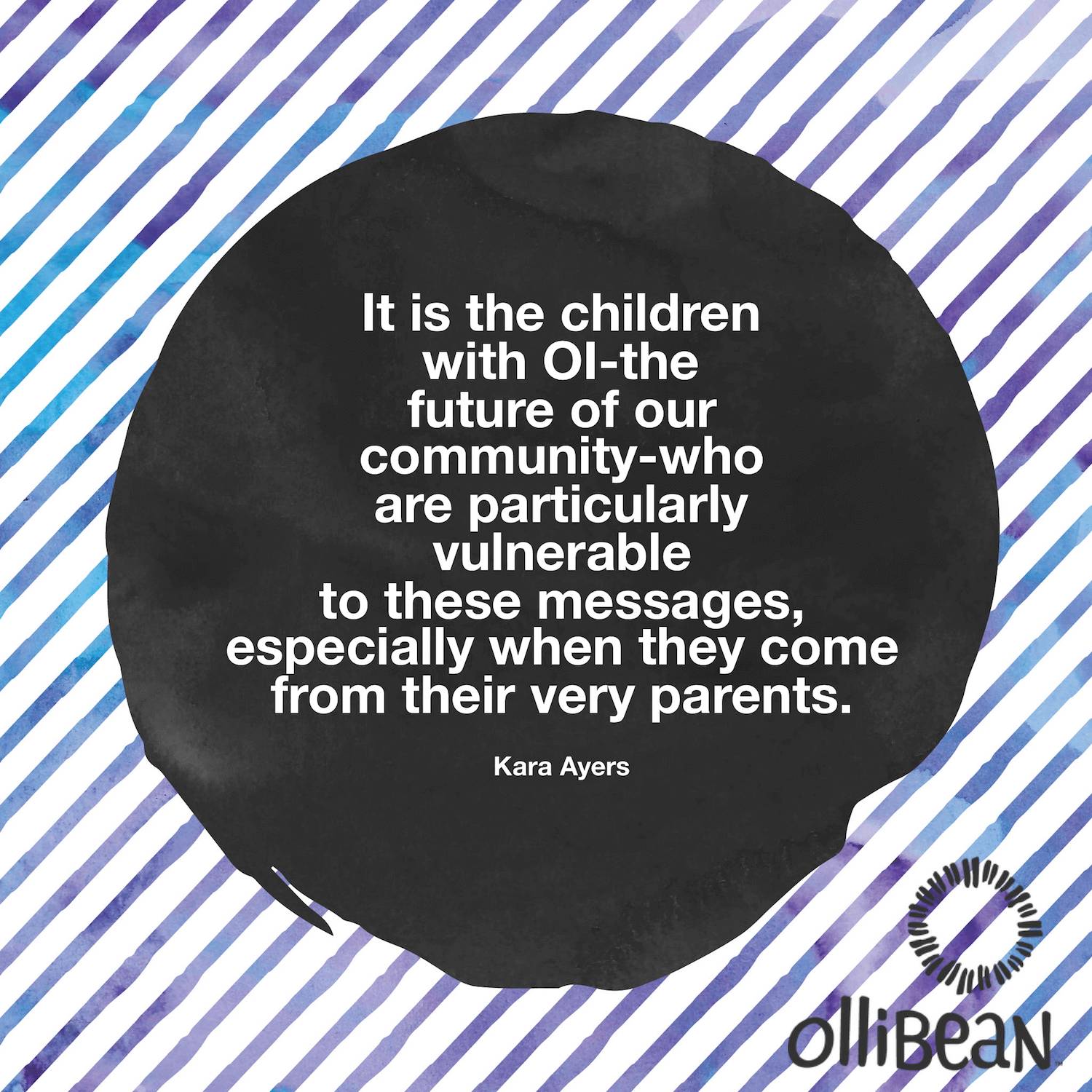
As a child, my family considered “hate” to be a bad word. We’re teaching my preschool daughter the same. Someday I will teach her the tragic impact of hate and the freedom that it has stolen and continues to steal from so many. For now-I don’t want her vocabulary or her mind limited by slurs and hate-filled language.
As someone who works in social media, I am familiar with the nuances of online lingo and trends. Hashtags it seems are picking up momentum. In the last month alone, I’ve been asked by co-workers, family members, and friends:
“What’s a hashtag?”
And I answer: A hashtag is a word used to unite a conversation across several people and across time. Some hashtags are funny (#isitfiveoclockyet). Others help people follow an event. I was an avid participant in the State of The Union conversation this year using #SOTU. Just today, I am live-tweeting and posting from the Ohio Disability Employment Alliance Conference using the hashtag #odea14. Anyone who cannot attend the event could follow my highlights and others who are posting using that hashtag. It also gives me the opportunity to connect with other people who are here so that we can continue these conversations after the event ends. In short, a hashtag is an idea, a belief, an event, or a theme shared by more than one and summarized by one word. Except when used in jest with exceptionally long or silly hashtags, you use a hashtag because you want others to use it too.
When Hashtags Stigmatize
The latest hashtag trend in my disability community (Osteogenesis Imperfecta) is hurtful and I’d like to address it with my belief that love, acceptance, and pride do prevail. People-almost entirely parents without OI who have children with OI-have begun using the hashtags #ihateoi and most recently #FUOI. Some argue that these hashtags are an attempt to cope with some of the challenging aspects of our bone condition.
Indeed, broken bones are painful but our lives are not defined by suffering.
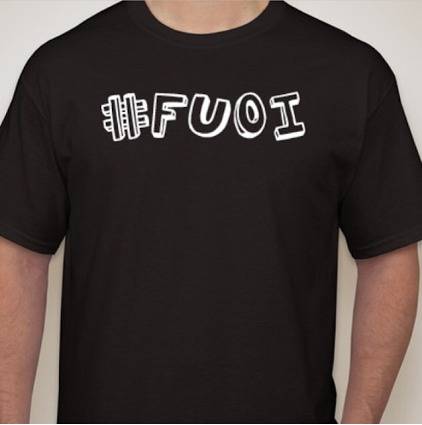
To carry the hashtag trend further, there’s even a t-shirt emblazoned with #FUOI. When addressing the designer, I was told the message was intended to counter the sorrow and suffering associated with OI. There are a few problems with this ideology. The first of which being-that is not what the hashtag says.
This Hashtag Says FU or States Hate for a Piece of Me
This hashtag says FU or states hate for a piece of me. It says FU to my family and my friends. In our culture-our language-there are few other ways to interpret these two words. Unlike someone without OI, I cannot-even if I wished to-pick and choose when I want OI to join me for the day. It is always with me. OI is not all of me but it’s a significant piece of my identity. Long ago, I began to find pride in my identity as someone WITH OI. Not because it was easy and not because it was popular. There will always be many more messages about disability should be overcome, disliked, and……hated.
I challenge those in support of a shirt with such a hateful message to reflect on whether they would wear a message stigmatizing another minority group. Would you end your post that shares a picture of a child of color with a hashtag of hate based on race? Would you wear a t-shirt stating FU to a particular religious group or to members of the LGBT community?
Whether an individual views disability as a culture or not, many many people with disabilities DO view disability as a culture. This expression of hate is hurtful. I hesitate to say it’s hurtful though just because I happen to view my disability as culture. If someone prefaced a characteristic of with “FU”, how would you respond?
So what to do?
If you’ve posted a hateful hashtag in the past, it’s not the end of the world. Perhaps you didn’t know. Again-there are many more messages in society that support this way of thought. If you CHOOSE to continue supporting and spreading hate after gaining knowledge of how it makes others feel, that is a different act entirely. I’ve attempted to address individuals about the way this message IMPACTS me and others with OI. The INTENT may be different but perhaps if the impact is understood, I thought some might understand. This hasn’t been the case. True to history, hate is easier and more popular. True to my beliefs though-knowledge, acceptance, pride, and love prevail.
Outnumber the Hateful Hashtags with #OIPride and #PridePrevails
I challenge the disability community and social media at large to join us in solidarity. Let’s outnumber the hateful hashtags by posting about OI with the hashtag #OIPride-or if you don’t have OI #PridePrevails. I am no longer concerned with arguing with people who have no intention of desire to see OI as anything but a negative and sorrowful existence. In the past, I’ve been drawn to this debate because it is the children with OI-the future of our community-who are particularly vulnerable to these messages, especially when they come from their very parents. Parents without OI who rally around messages of hate make a choice. I do as well #oipride #prideprevails.
Kara Ayers, PhD, is the Advocacy and Dissemination Coordinator for The University of Cincinnati University Center for Excellence in Developmental Disabilities (UC UCEDD) and has been featured on Disability Blog the official blog for Disability.gov.

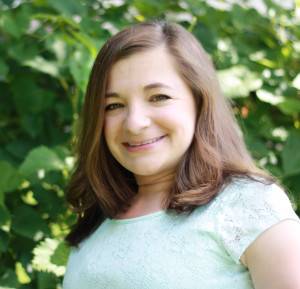
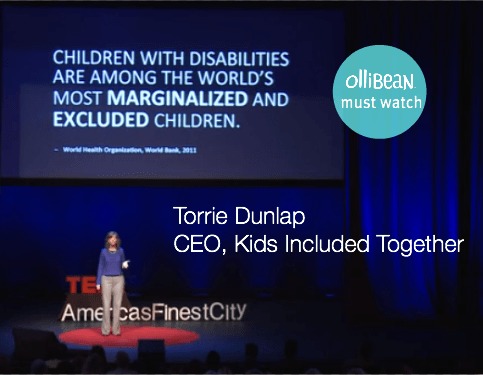
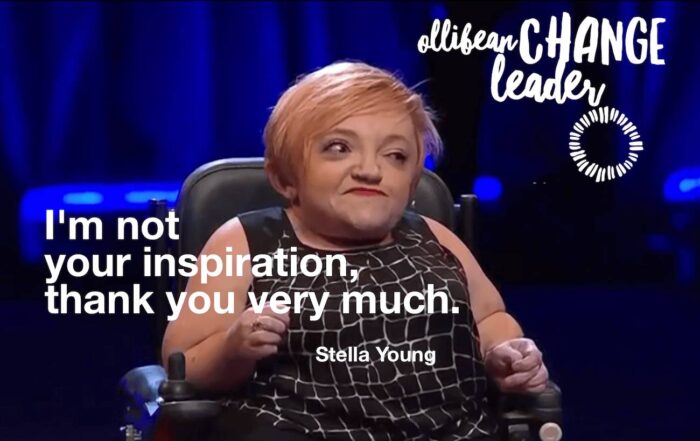
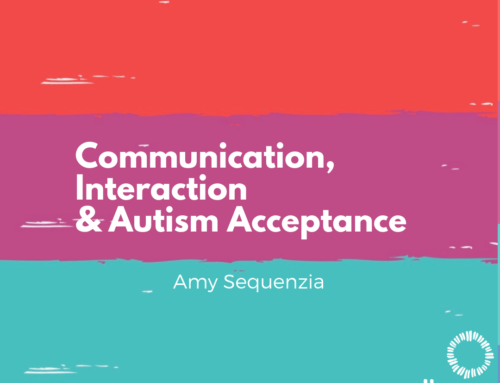
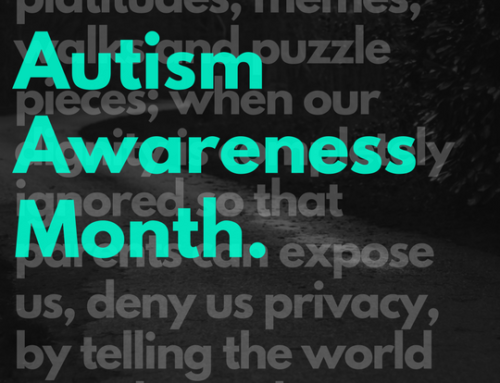
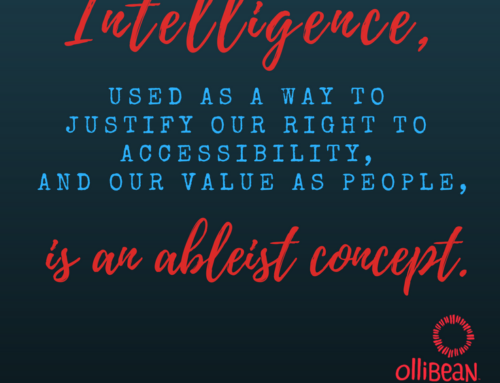
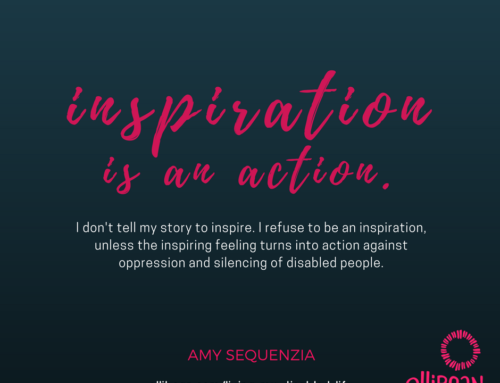
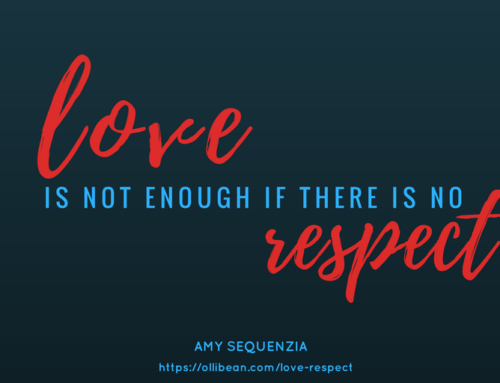
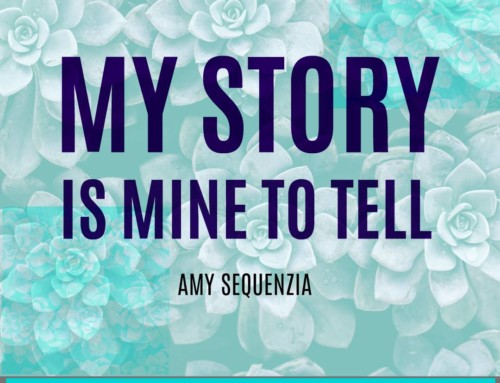
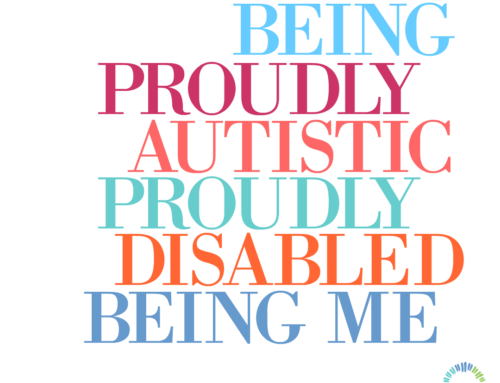
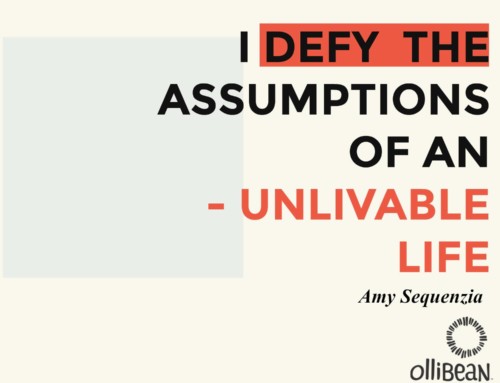
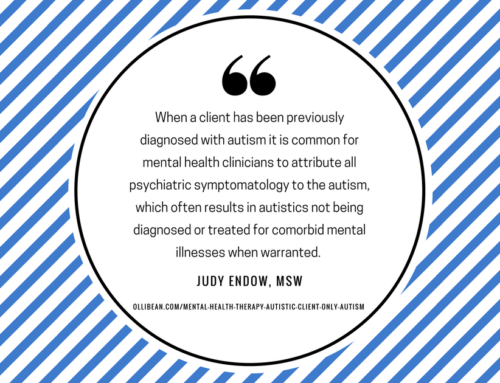
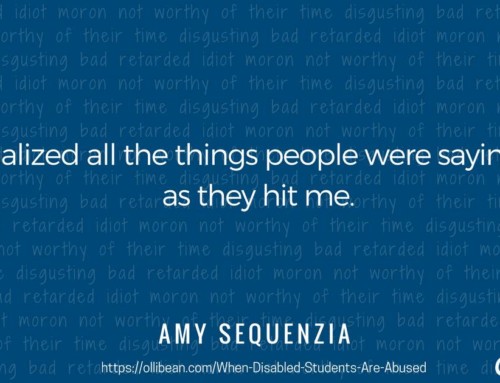

As a parent, I have to disagree Kara. Just recently I had someone tell me that when dealing with depressed people, you have to make a third party named depression to blame actions on. That way, it’s ok to hate depression. What’s the difference here? I understand what you are saying. Trust me, I don’t hate OI. My daughter has a severe type and it is her…in a do over, I wouldn’t have her without it. But YOU don’t seem to understand…I know you know the hardships of OI, but how do you think your parents felt? Because for me, it is NOT easy to watch my child hurt for no reason. Or to break her leg after tripping. Or cry her eyes out because she wants to go down a 10 ft. bouncy water slide like all her friends. Those are the moments when I HATE OI! But I guess you love your condition through all those hardships too.
I agree Kara to an extent. I don’t like these hashtags, but I also get frustrated when for no reason I break my femur, or I need shoulder surgery for the 6th time. It’s frustrating to know that there are things I simply can’t do because of my shoulders and OI but mostly living with OI for me is more about celebrating the good times and all the things I can do even when splinted casted slinged you name it lol. I get and appreciate Dana’s point. I think it’s really hard for parents because they are watching this happen to their kids and I think this is a coping mechanism.
@Dana Clam Busby-I’ve also heard the suggestion to externalize depression-or it’s a more common intervention for people with eating disorder-but that’s different. If it’s helpful for you (as a parent who doesn’t have OI) to cope with OI by saying you hate it or “FU” then could you just do so without making a t-shirt that screams that message to me and others? It really sounds like your frustration is about being a parent….about watching OI. As the person who didn’t go down the 10 ft bouncer slide….ever…..I’m ok with that. There are bigger more important things. @Brianna Hartmann-there are lots and lots of coping mechanisms that don’t hurt other people and divide our community. Parents without OI can’t claim to respect us and our experience living EVERY DAY with OI and then wear shirts with this message. I share your frustrations with parts of OI, including pain, but don’t you find it a little insulting that you are being told it’s more challenging to be a parent (without OI) of a child with OI than a person LIVING and thriving with OI? And why is it a competition?
So you think as a parent of a child with OI, that since I do not have OI, that I can pick and choose when OI is part of my life?
You are twisting this to your benefit in order to type some words and have someone agree with you. No one said FU Kara.
Then I read further and you are seriously bringing up race as a part of this? I do NOT understand this. The same thing as your ‘desperation porn’ project. You have no right to bash other parents just because you are the one who is so different.
If I had cancer, would it bother you if I say “FUCancer” or if I had diabeties, would it bother you if I say “FUDiabeties”
If you don’t like it, no one sent you a shirt, get over it.
Apparently you have not accepted all of this disease as it ‘bothers’ you that when someone’s child breaks from raising his arm time after TIME AGAIN they cannot say “FUOI”
But maybe if it were that parent who had OI and she broke her arm over and over again from NOTHING that she could say “FUOI” and it be okay? But oh yah that’s right, since some of us parents do not have OI we have no right to say screw you to this disease, as we can just pick and choose when OI is part of our lives. Pathetic.
@Amanda-You don’t see the connection to race because you don’t see OI as a part of a person’s culture. You have a son with OI. You don’t have OI. If you have respect for adults with OI-at least the ones who have stated this is bothersome, you wouldn’t act in direct opposition. I think your true feelings about adults with OI was summarized by your comment that I “am the one who is so different.” I’m really not….I’m a woman…a mom…and just someone who doesn’t accept hate with the excuse that life can sometimes be hard.
Thank you, Kara!
I’m going to start out by saying I am also a parent who HAS Osteogenesis Imperfecta, and my two beautiful daughters do as well. I know what it’s like to break something. I know what it’s like to not be able to do activities that others do. I know what it’s like to watch your child suffer in ways that no parent should ever see. I’ve lived it from both a personal point of view and a secondary point of view, and I have to say I disagree with you Kara wholeheartedly on many of your points. HOWEVER, I do see where you are coming from and can respect your feelings. Teaching hate is wrong. Plain and simple. I would never teach my child to hate. I don’t think that saying FUOI is directed at hating a piece of me, though. It’s hating something that afflicts me, and you know what? I do hate OI. I love myself. I love my children more than life itself. I’ve had my bouts of depression because of the chronic pain I feel, for passing it on to my children, for knowing the hard road they will have to travel at times because I passed on my faulty X chromosome to them. I wouldn’t change anything about myself or my children, though. I am who I am because of OI. They will be who they are because of OI. Of course I wish with all my heart they would never know pain, but what parent doesn’t feel that way? There is a culture based around OI, you’re right. I have been fortunate enough to find this beautiful community and have thrived from it emotionally. Having others virtually hold my hand as I battle through life, or simply seeing their struggles and reminding me how very, very fortunate I am, has been cathartic in ways I could never fully express in words. Parents who don’t have OI see the same things I do, though. They hurt the same way I do. They’re angry for the same reasons I am. They’re no different than I am. Do you think they have less of a right to be angry because they didn’t have to write reports during gym class instead of play kickball? Or because they wake up in the morning and don’t have to limp around until their backs and joints stop aching from stiffness? I think it’s okay for everyone to hate OI. I think it’s okay to teach your children that they can be angry about the hand they’ve been dealt. It’s bullshit, and if my children want to bitch to me about OI when they’re older I will hold their hands and bitch right along with them, because it sucks. But we also teach acceptance. We grow. We teach them that yes, it’s okay to hate your OI, but you must love yourself, OI and all. We teach them that this makes them stronger, not weaker, because it does. That’s the lesson that should be taught; to love every part of us, to accept ourselves the way we were created, even the parts we hate.
I think it’s very interesting that these parents would be okay with saying this, much less wearing it on a shirt. OI, and other disabilities, become a part of that person’s identity (not to be confused with all of their identity). I believe saying something like “FUOI” will later have a more significant impact on your child than you think. In the simplest terms, your child will start holding that simply statement as part of their identity as well. It will go something like this for your child,
FUOI, I have OI, therefore, F* me. In other words, my parent hates OI, I have OI, therefore, my parent hates a part of who I am.
I have to agree with Kara on this.
As a parent of a child with OI and also having OI myself I strongly disagree with you. There is a huge difference in watching my kid go through something and going through something myself. I hate OI and I will proudly say it. I hate watching my daughter not being able to do things. I hate cringing when she does things I don’t want her to. I hate the fact that she asks me about her teeth all the time. That being said… I talk about OI to everyone. As a nurse, every hospital I’ve worked in has been well versed in OI. While in nursing school I spoke about OI to multiple classes and levels.
I think that this topic has more to do with respect and for recognition than it does about a #hashtag on a tshirt. Respect and recognition have been the battleground for the disability movement since it began. Every message we send (no matter how big or small) carries a message into the world – and I don’t mean just on the front of a tshirt. Every message creates a perception in the minds of those reading them and from those perception comes action. Before sending any message into the world we should all ask ourselves what perception it will inspire in others (will it be positive or negative)? Will the message inspire the action we intend or that we would like to see? what does it lead and what might be the consequences (for all involved)? I know for certain that my greatest challenge lies in the ill-informed (sometimes well intended) perceptions that people form about me and my life with OI. The actions that these perceptions lead are often the root cause of discrimination, prejudice and exclusion. As a disabled person I need to fight everyday for respect and for recognition. Altering negative perceptions is an absolute critical part of that journey. #OIPride
I’m mobile and cannot see all of your comment. What I mean by “you are different” is not where you are trying to take it at all. YOU have something negative to say about everyone and everything. You preach that everyone should have OIPride but you seem to use this disease more as a reason to start controversy and hurt others, and that is sad. It’s not your right to tell others how to live with this disease. I realize that you are posting in order to get “supporters” that feel as though as you do.
so i debated on if i was going to comment on this i even made my own blog about this and you are free to go read it but i will give my opinions here too. first of you say you dont want to argue with individuals over this topic but its all i see in the comments. second of all i believe that oi doesnt define me i am destiny i decide my life my oi doesnt so this shirt doesnt attack me personally oi is just a part of me a part of me that i have happily accepted but i am not going to lie and say theres not days where i hate it because there are. no matter what you feel kara i think you as an advocate as you say you are should be able to see both side. because yes even though i do not agree with you causing this big of a deal over a shirt that is not directed towards any person in particular i do see where you coming from how it may make some people mad but i believe that in our society alot of things are controversial from deciding colleges, to race to sex but i believe its how you handle that hate how you handle your emotions. i truly hope the oi community can put all this behind us and come together once again….
Kara Ayers Thank you!
Well, after waking up to more comments picking my, and other thoughts that contradict yours apart over nuances, I’ve decided to remove myself from this conversation. I have more important things to do than to argue with someone over the internet who is trying to rattle bones (pun intended). Your ideas may not be wrong, but they’re certainly not right, as are my own. They’re your opinions. It’s wonderful that the internet lets everyone have their own opinions and air them freely. I just hope the others can see through your spouting tolerance to see just how truly intolerant you are, especially towards parents of children who have OI but do not have it themselves.
Also, your list of OI pros was weak, at best. There are no pros. I would gladly remove myself from the support groups and community if myself and my children could be OI free, and I would wager there are plenty who feel the same. Not that I don’t appreciate their existence. I mentioned they’ve brought me peace, but I would pass it all up in a heart beat to take back my sleepless nights in the hospital watching my newborn crying in agony and not being able to do anything to comfort her, like hold her and nurse her. The years of suffering in pain myself. The headache from having to deal with the insurance companies and attempting to get assistance for the bills I will never be able to afford.
Good luck trying to win such a pathetic battle. #FUOI.
Kara, love this. Reading the comments, I feel the need to comment! I don’t have OI, but I do have a skeletal dysplasia, and if someone made a tshirt that said “FU SED”, I would feel the same way. The biggest thing for me is that, as someone with a condition that affects every bone in my body, SED and my body are inseparable, so I couldn’t say “I hate SED” without saying “I hate my body.” There are certainly times I have felt and said this – I imagine every young woman, with a disability or not, probably has. But I hope everyone would agree that hate directed towards one’s body is NOT healthy. Are there aspects of my body that I’m not always a fan of? Of course. I posted a picture just a few days ago with the hashtag “SEDproblems”, referring to hip pain. But, the most important thing I’ve realized the past few years, is how important it is to love my entire body, limitations (and weird-looking-parts) and all. After all, it is our bodies that allow us to experience the world, and I love all the things my body can do for me – move through the water, hug my friends and family, learn to move super fast with a wheelchair after surgery, experience romantic love. I feel very fortunate that, growing up, my parents never expressed any sentiments about hating my condition. Of course, whenever I had surgeries, or came home crying in pain, they told me they wished I never had to go through that, but they limited their sentiments to specific instances, instead of directing negative sentiments towards my entire being. And when I complained that it wasn’t fair I couldn’t go in the bouncy castle, they directed me to places I could go. Are there aspects of my disability that aren’t fair? Of course. But that’s life, disability or not. Thanks for sharing!
I have two children with OI, a husband, and many family members on his side. Many not even being affected to the severity of my daughter and brother in law. My take on the shirt was this…. My daughter just broke her foot again for the 5th time in two months shes mad, im upset that she mad and can’t do something that she wanted to do now. so fuoi that the big thing my daughter just wanted to do she can no longer do until she is healed. I don’t say fu Shay or fu Kara or fu anything for that matter. I’m not sure I would ever wear that shirt out but there are days that we feel that way. This disease is not who Shay is and is who Shay is. Yes itls a contradiction but there is no other way to describe it. Her personality and feistiness im pretty sure was invented thanks to OI and its one of the very things I love. We have OI pride and love all of the people that we have met that has become a family that understands what not many people can fathom.
My brother in law is type one mild……well……was until one day him and my husband were play wrestling. My husband 14 his brother 16 and well….something happened just the right way and Gabe my husband fractured his brothers neck. His brother is now a quadriplegic and releys on people to do his personal care on a daily bases. There are days when his brother says fuoi and I get it. I believe that as you are entitled to this opinion that those that choose this are probably doing this based more on a feeling that oi SUCKS somedays. Not everyday is butterflies and rainbows and while we rejoice in the bad we can hate it in the bad and tell it to f off…or whatever it may be that makes that person feel better. I do believe the person who made this shirt had no ill will and I’m fairly certain it was not her intent to offend anyone.
I can only speak for myself when I say some days I do think Fu oi for affecting my daughter. For making her cry for causing pain that I as her mother cant fix. Of course emotions will get involved because after all we are all human we all have a perspective. Kara I don’t know you and I know now that you are a mom. No mom wants to see their child hurt, with or without OI.
This is causing a rift in our OI family and I think that everyone is entitled to their own opinions but at the end of the day, we all need to support each other. For Gods sake many of our profile pictures are snowflakes still because we just lost members and now we are having a lot of hard feelings over a shirt that was meant to blow off steam not cause all this indifference.
Kara, thank you for this post. I don’t have OI but as a proud autistic, I can relate. What people who experience disabilities from the outside, even when very close to disabled person, don’t seem to understand is that we cannot feel good about ourselves, have a healthy view of who we are, if even the ones who love us hate a very big part of who we are.
We are not separate from the disability. By saying “I hate” or “fu” whatever disability, which shapes and defines a huge part of our lives. Can’t hate my identity and not hate me.
It would be, like you said, hating “blackness” of a black person while saying you don’t hate the person. It does not make sense.
I applaud your patience. Like with parents in the autism community, non disabled parents of disabled children seem to forget that their kids’ future and how they are seen by the “outsiders” cannot be hopeful if when they are seen the association with hateful words will stick.
The children might also grow up resenting the parents who could not support their identity
Intolerance is a form of hate. Being intolerant of someone else’s thoughts, when not directed particularly at you or intended to hurt you, is a form of hate. You don’t have to agree with someone else’s views to accept them. Acceptance is ultimate love. Someone wearing a shirt that says FUOI, meaning they or their loved one will prevail against the odds, shouldn’t affect you. When you decide to go against the community, however you choose to do so, you are creating hate.
Peace to you, namaste.